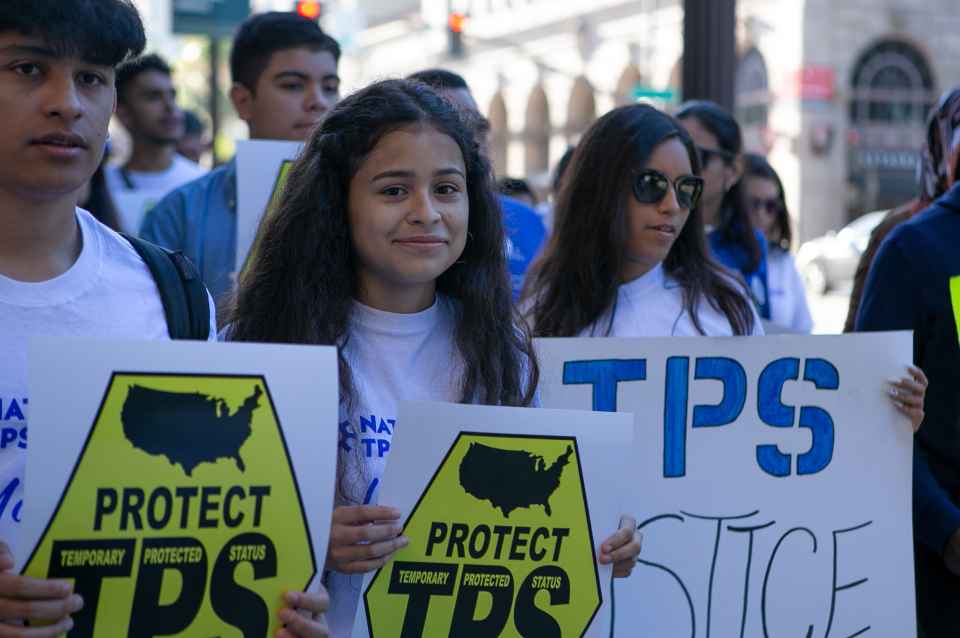- A U.S. federal judge has extended Temporary Protected Status (TPS) for approximately 60,000 people from Nepal, Honduras, and Nicaragua.
- The protections were set to expire under a Trump-era policy, but the court found potential racial bias in the termination decision.
- TPS holders can continue living and working legally in the U.S. while the ruling remains in effect.
- Homeland Security had argued the countries had recovered enough to justify ending TPS.
- The National TPS Alliance filed the suit, representing affected immigrants.
The Big Picture
A federal judge in California has blocked the planned termination of Temporary Protected Status (TPS) for around 60,000 immigrants from Nepal, Honduras, and Nicaragua — a decision that temporarily halts deportation proceedings for thousands of long-term residents. The ruling was issued by U.S. District Judge Trina L. Thompson.
According to the report, TPS protections for 7,000 Nepalis were scheduled to end this week, while those for 51,000 Hondurans and 3,000 Nicaraguans were due to expire on September 8. These groups have been legally residing and working in the United States for decades under TPS designations.
What’s New
The Biden administration had allowed the Trump-era wind-down process to continue, prompting legal challenges from advocacy groups. Judge Thompson ruled in favor of the plaintiffs represented by the National TPS Alliance, stating that there was sufficient evidence suggesting racial bias in the original decision to terminate the status.
“Color is neither a poison nor a crime,” she wrote in her opinion, emphasizing the significance of equal protection under law.
What They’re Saying
Homeland Security Secretary Kristi Noem defended the move to end TPS, citing “significant progress” in Honduras and Nicaragua since the destruction caused by Hurricane Mitch in 1998. “It is not meant to be permanent,” said Justice Department lawyer William Weiland, according to AP.
On the other hand, attorneys representing TPS holders argued that the administration had weaponized immigration policy. “TPS was used as a political tool,” Arulanantham argued in the federal courtroom.
What’s Next
Government attorneys maintain that the decision to grant or end TPS falls within the sole discretion of the Secretary of Homeland Security and is not subject to judicial oversight. However, the court’s ruling halts the expiration process while legal reviews continue.
The ruling comes amid broader debates over immigration enforcement under the Trump administration, which had previously sought to eliminate TPS for Haitians, Venezuelans, and other groups as part of its crackdown on immigration policy.
Implications for TPS Holders
The court’s ruling carries significant consequences for thousands of immigrants from Nepal, Honduras, and Nicaragua who were facing the end of their Temporary Protected Status (TPS). While the decision offers temporary relief, the legal and policy uncertainty remains high.
Protection from Deportation
The immediate effect of the ruling is a freeze on any planned deportations. TPS holders covered by the decision can legally remain in the United States while the legal process continues. This protection applies regardless of original expiration dates set for August or September 2025.
Continued Work Authorization
Beneficiaries will retain valid employment authorization. The U.S. Citizenship and Immigration Services (USCIS) is expected to issue updated guidance or extend Employment Authorization Documents (EADs) as has been done in previous TPS-related injunctions.
Legal Status Still Uncertain
The extension is not permanent. It hinges on ongoing legal proceedings. If the ruling is overturned on appeal or if the plaintiffs’ case fails, TPS holders could once again face termination deadlines and possible removal proceedings.
Travel Limitations Remain
Although TPS recipients may apply for Advance Parole, international travel remains legally risky under current conditions. Changes in legal protections during a recipient’s absence could lead to challenges upon reentry.
Advocacy and Scrutiny Strengthened
The court’s willingness to examine possible racial bias in TPS termination decisions lends new credibility to advocacy efforts. Organizations like the National TPS Alliance have argued that the Trump administration’s moves were politically and racially motivated. This ruling suggests courts may be more receptive to such arguments moving forward.
The Bottom Line
While the Department of Homeland Security may still appeal the decision, tens of thousands of TPS recipients from Nepal, Honduras, and Nicaragua now have renewed legal protection — for the time being. The ruling serves as a powerful reminder that courts are increasingly scrutinizing the motives behind immigration decisions, especially where racial or ethnic bias may be at play.
TPS Holders Challenge the Termination of Temporary Protected Status for 60,000 Residents
‘None Have Committed a Crime,’ Federal Judge Says in TPS Hearing
Follow Virginia Times for regular news updates. Stay informed with the latest headlines, breaking stories, and in-depth reporting from around the world.
A global media for the latest news, entertainment, music fashion, and more.














